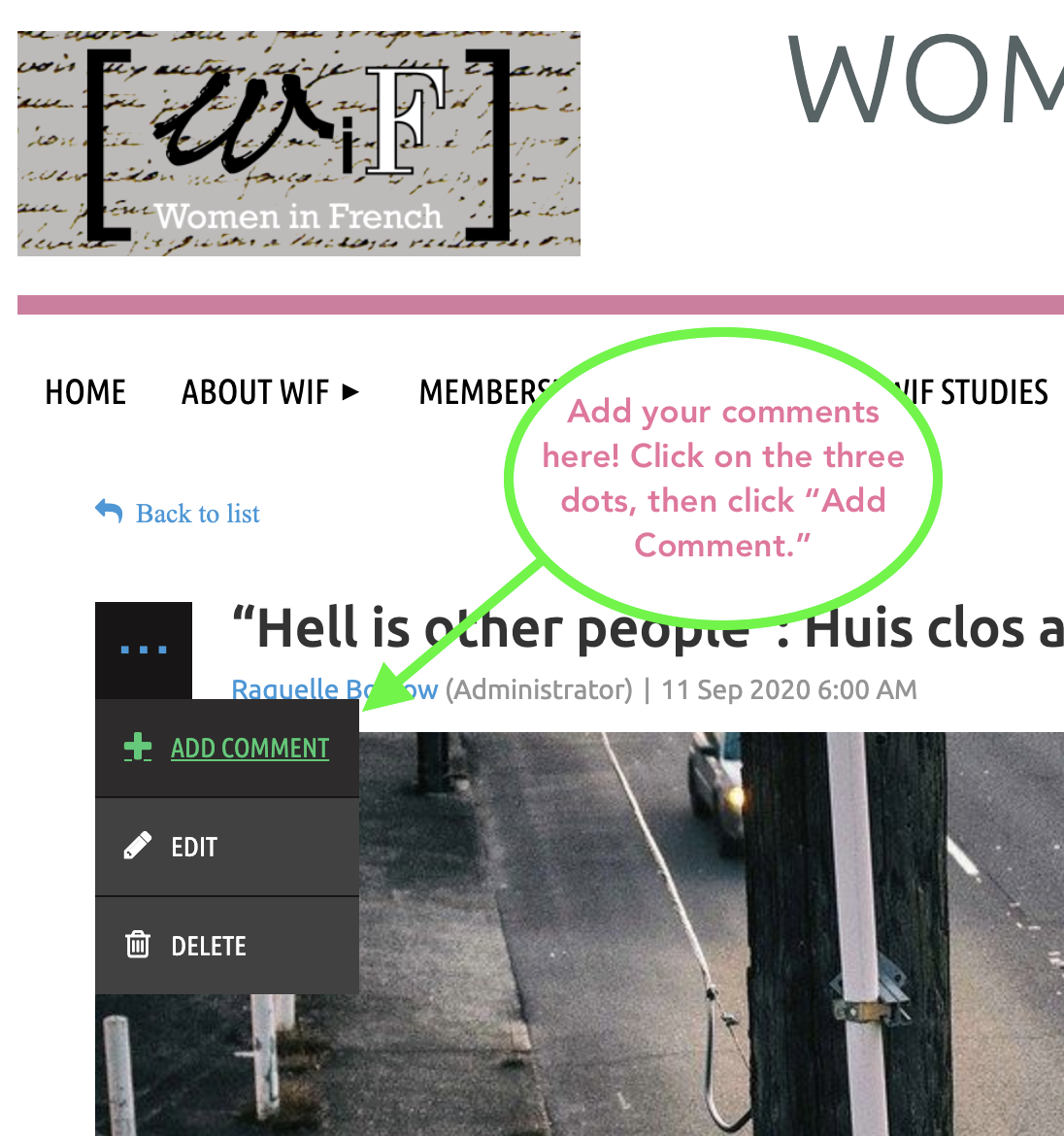CALL FOR CONTRIBUTIONS
WIF Studies
Special Issue 2022
“Tu es drôle pour une fille”
Funny Women in French, from the Salon to Youtube
For a special volume of Women in French Studies (2022), we seek contributions that investigate the humor of women of French expression since 1789. We wish to explore the cultural archive for signs of women’s creative use of humor since the Revolution and the Napoleonic Code and track it through today’s digital age. Against a tradition of reception that treats women as the unlaughing at which men laugh, this volume aims to demonstrate and reflect on the multiple humorous forms and practices of women of French expression and on their place in what Alain Vaillant calls “la civilisation du rire.”
It has been 20 years since Humoresques devoted a special issue to the question in Armées d'hmours : rires au féminin, where co-editor Judith Sandor Stora wrote that “l’étude de l’humour féminin en France commence à peine.” In 2012, the Canadian journal Recherches féministes took up the mantle with its special issue “Les voies secretes de l’humour des femmes” but left the door open for a volume on the humor of women of French expression.
The need for such a volume has become all the more compelling since the Humoresques volume. Along with novelists of all stripes, women are laughing: in the press and in cartoons, in street art, on the little and big screen, on the radio, and on the stage. Blanche Gardin won the Molière prize for humor in 2018. Franco-Ivoirien stand-up Shirley Souagnon travels to Reunion to conduct humor workshops. The Internet explosion allows women unmediated access to a global public. Greater visibility and increased numbers, though, have not changed the fact that funny women still pose a problem. In 2014, French Youtuber and humorist Natoo (Nathalie Odzierjko) published a vlog called “Les femmes et l’humour” in response to a viewer’s back-handed compliment, “Tu es drôle pour une fille.” Natoo’s five-minute vlog deliciously skewers the perennial stereotypes about women and humor, calling to mind 19th- century journalist Delphine Gay de Girardin’s witty nose-thumbing to would-be detractors in her weekly newspaper column from the July Monarchy.
Submissions that explore any region of the French-speaking world and any creative practice using humor (taken in its largest sense to include the comic, the satiric, the ironic, etc.). within the historical parameters are welcome.
Trans-national and historical perspectives most welcome.
Possible areas of inquiry:
*literary humor
*performance (art, music, one woman shows, etc.)
*cartoons and comic strips,
*radio
*television
*cinema
*digital cultures.
Abstract of 250-300 words in English or in French requested by November 4, 2019.
Please send proposals to Cheryl Morgan (cmorgan@hamilton.edu)
Notice of acceptance by December 15, 2019.
Full manuscript due by June 10, 2020.
Manuscripts will go through blind peer review.

